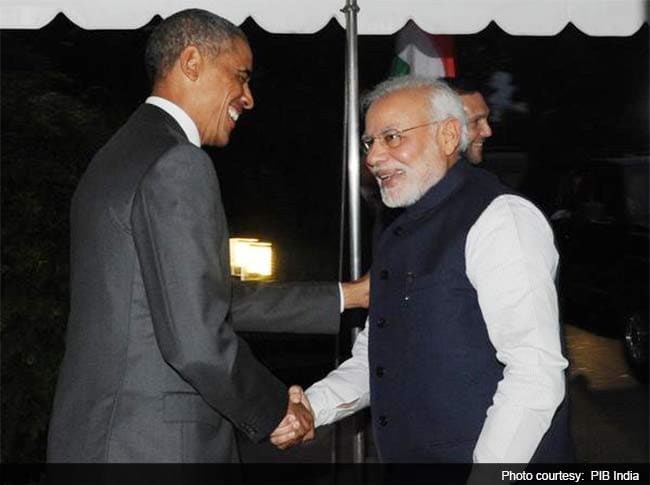
US President Barack Obama arrives in India on Sunday for the second time, to build on what he calls one of the defining relationships of the 21st Century.
Here are some key areas likely to be discussed during his visit:
Strategic importance: India's size, location, fast-growing economy and potential as a democratic counterbalance to China makes the South Asian nation an increasingly key element of U.S. military and commercial strategy. In return for closer ties, India wants greater cooperation on terrorism and access to high-technology goods for civilian and military use.
Defence: The United States overtook Russia as the biggest weapons supplier to India, the Indian government said in August. India is the world's biggest importer of weapons and the United States is the biggest arms supplier. Standing in the way of closer ties are Indian restrictions on foreign companies owning majority stakes in defence companies and U.S. curbs on exporting certain technologies.
Civil nuclear: US and Indian officials will discuss ways to unblock billions of dollars of potential trade in nuclear energy. India and the United States signed a landmark civilian nuclear deal in 2008. Holding up the trade is India's resistance to clearing legislation shielding suppliers from liability in the event of a nuclear accident, which is seen as a deviation from international norms.
Renewable energy: India wants companies from the United States to help lead investments of $100 billion in renewable energy. Prime Minister Narendra Modi promised to help renewable energy companies overcome entry to the Indian market during his trip to Washington last year. A barrier to investment is a requirement that foreign companies make much of the equipment within India, which business leaders say will push up costs.
Climate Change: The United States and India are expected to announce efforts to work together to combat climate change ahead of key global talks in Paris later this year. India, the world's third largest carbon emitter, is reluctant to follow the United States and China in committing to a peak year for emissions on the grounds it needs economic growth to alleviate poverty. Instead, India is likely to highlight its plans for a rapid expansion of renewable energy, for which it needs U.S. investment and technology, and improving energy efficiency.
Economic Ties: Prime Minister Modi and President Obama last year targeted a five-fold increase in annual trade to $500 billion. But US business leaders have been frustrated by limits on their access to the Indian market, and battles over intellectual property protection. India and the United States have also filed several cases against each other at the World Trade Organisation over protection of their domestic steel, poultry and solar industries.

